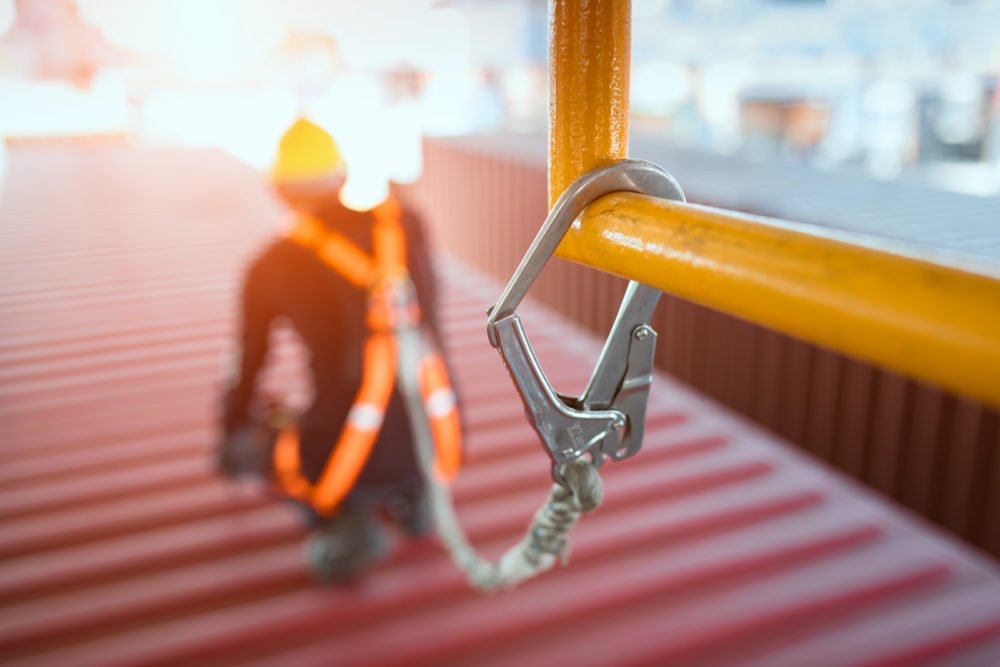
Ever imagined a world without builders and construction personnel? Well, the picture you get if you did shows you just how much construction site workers mean to our world. Without sugar coating things, though, every occupation has its own set of risks and hazards. However, construction is one of the most dangerous jobs as far as workplace accidents are concerned. A simple mistake or act of negligence from the part of the contractor/employer could easily cause an accident that could result in injury or death of more than one person. If you’re a construction worker, it is highly likely that you’re aware of the risks and dangers you’re exposed to on a daily basis. For this reason, not to say that it will happen to you, it’s highly important to know how to handle yourself in the unfortunate event you find yourself in a construction site accident. To get right to it,
Here are the 7 steps to take after a construction site accident.
1. Get Medical Attention
When involved in a workplace accident as a construction worker, the first and most important step to take is to ensure your safety and well-being. To do this, calm down and check for any possible injuries and call for help if need be. There’s a high chance that you won’t be alone so if you’re stuck alone in rubble, debris or heavy equipment, try to breathe and call or shout for help. If you can move, be sure to seek medical attention right away, preferably from a well-recognized health institution for proper medical check-up and treatment.
2. Let Your Supervisor/Superior Know
The other important step after a construction accident is to let your superiors at the site know of the accident, preferably in writing within 30 days at most from the time of the injury. While so doing, you’ll want to document every important detail about the accident, including where, how, and when it took place. By writing and submitting your notice as soon as possible, you can avoid losing details that could be crucial when seeking compensation and preventing the same from happening to you or other workers in the future.

3. Note Any Witnesses
It might not always be so, but a good number of construction accident cases end up in court. When trying to come to a verdict in your compensation claims case, the judge and the jury will majorly rely on facts and evidence more than logic during the hearing in order to arrive at a decision. Witnesses from the scene will also play a huge role in this since their sworn testimony can always be considered as admissible evidence in a court of law. For this reason, it is best to have the names and contact details of co-workers, bystanders, and any other witnesses that were present at the scene at the time of the accident written down in case they’re needed at a later date. Many construction accidents end up with lawsuits and legal battles, which brings us to the next important step to take.
4. Get Legal Advice/Assistance
More often than not, construction site accidents result in serious injuries to the employee, not to mention the possibility of death. In the case of injuries, the accident could cause the worker’s inability to work and bring food to the table for their family. It could result in pain, suffering, frustrations, and financial hardships. Well, Worker’s Compensation (which will be discussed later) may help cover your treatment costs and medical bills, as well as pay a part of your salary for a specified amount of time.
However, this can put a lot of pressure on you, considering the strict time limits, especially if you got seriously injured in the accident. Mitchell Feldman, a Florida-based specialist in such cases, says that this is when to talk to a Tampa construction accident lawyer and get fairly compensated for your pain and suffering. With good legal advice (and representation), you can focus more on your well-being and recovery, which is what matters most at this time. Your legal counsel will take you through everything you need to get your claim processed, advice you appropriately on how to pursue it, and probably give you an estimate of the amount of compensation to expect.
5. Report and File a Claim to Workers’ Compensation
In the United States and many other countries, workers’ compensation insurance is a legal requirement for employers, construction companies, and contractors in similar industries. It basically protects the rights of employees, while also protecting employers from liability. To get the much-needed financial relief after being injured on the job, you’ll need to report the accident and file your claim to the Workers’ Compensation Board. To do so, you’ll need to fill the Employee Claim Form and send it to them within 2 years from the time of the accident or from the time you got your medical report. On top of this, you may also have the legal right to sue your contractor, equipment manufacturer or your employer in seeking further compensation on top of your workers’ compensation benefits so be sure to ask your personal injury attorney about this.
6. Report to OSHA
Some construction site accidents are more severe than others and may result in the hospitalization/death of more than one or two individuals. Such major accidents need to be reported to the Occupational Safety and Health Administration (OSHA), 8 hours at most after hospitalization or fatalities. Based in the U.S and part of the Department of Labor, the organization is tasked with making investigations about the safety of workplaces, among other things.
7. Appealing Denied Claims
Just like with any other compensation claims, your personal injury claim after a worksite accident may be denied. However, workers have the right to file an appeal within 30 days after being denied. In addition to time restrictions, there are certain requirements for filing the appeal, and in this case, an expert injury attorney will also come in handy.
Construction is no doubt a high-hazard industry. Every single second spent on a construction site comes with a risk of getting involved in an accident and getting injured. Luckily, insurance and the law are always there to your rescue when it comes to compensation for money spent on medical bills, income loss, and other financial hardships that come along with it. You just need to know how to approach it, and the few points above cover just that.








